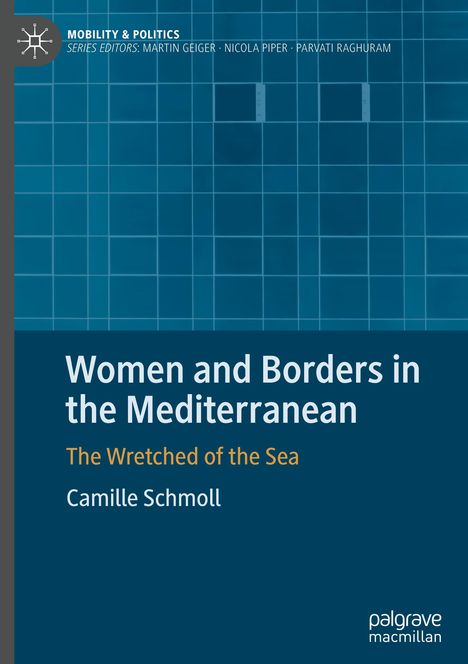Camille Schmoll: Women and Borders in the Mediterranean, Gebunden
Women and Borders in the Mediterranean
Buch
- The Wretched of the Sea
- Verlag:
- Springer International Publishing, 04/2024
- Einband:
- Gebunden, HC runder Rücken kaschiert
- Sprache:
- Englisch
- ISBN-13:
- 9783031450969
- Artikelnummer:
- 11815906
- Umfang:
- 208 Seiten
- Nummer der Auflage:
- 2024
- Ausgabe:
- 2024
- Gewicht:
- 388 g
- Maße:
- 216 x 153 mm
- Stärke:
- 16 mm
- Erscheinungstermin:
- 2.4.2024
- Hinweis
-
Achtung: Artikel ist nicht in deutscher Sprache!
Klappentext
This book offers a history of migration in the Mediterranean written about and from the perspective of women. It gives a complex picture of individual journeys of migrant women, and in a radical departure from the miserabilist or culturalist approach through which women are usually viewed, the book argues for a politically and socially aware, activist feminism that is attuned to what border-obsessed migration policies actually do to women.The research presented in this book is based on multi-sited fieldwork that led the author to closely follow migration survivors. The book depicts the journey of women as they experience brutal separations, have to make heart-wrenching decisions and end up wandering from one place to another, but also as they make acquaintances and find new opportunities. The first-person accounts collected here demonstrate that the reasons behind these women s decision to leave are anything but simple and linear: they combine various forms of persecution and oppression, a desire for autonomy and a yearning for new horizons, as well as changes in gender relations in their countries of origin.
The book further explores the daily lives of women in reception centres, where they are in limbo, their journey as if suspended, as they wait for this Europe rejecting them to acknowledge their presence. These women live on and in the border a border that relentlessly haunts them and pursues them everywhere they go. Boredom is constant and, likewise, racism and marginalisation processes are pervasive. At the same time, this study shows that these women are also resisting, strategising, taking charge of their own destinies and journeys, and looking for a way out.
Written from the standpoint of a geographer, this study accordingly puts the space of everyday life front and centre. Such a space acts as an impediment to these women s journeys: it generates a moralscape of waiting, which plays a key role in these women s daily lives. However, it can also help these women gain greater autonomy, thus empowering them, and it may be subverted through various tactics and stratagems, which sometimes take the form of spatialised strategies.

